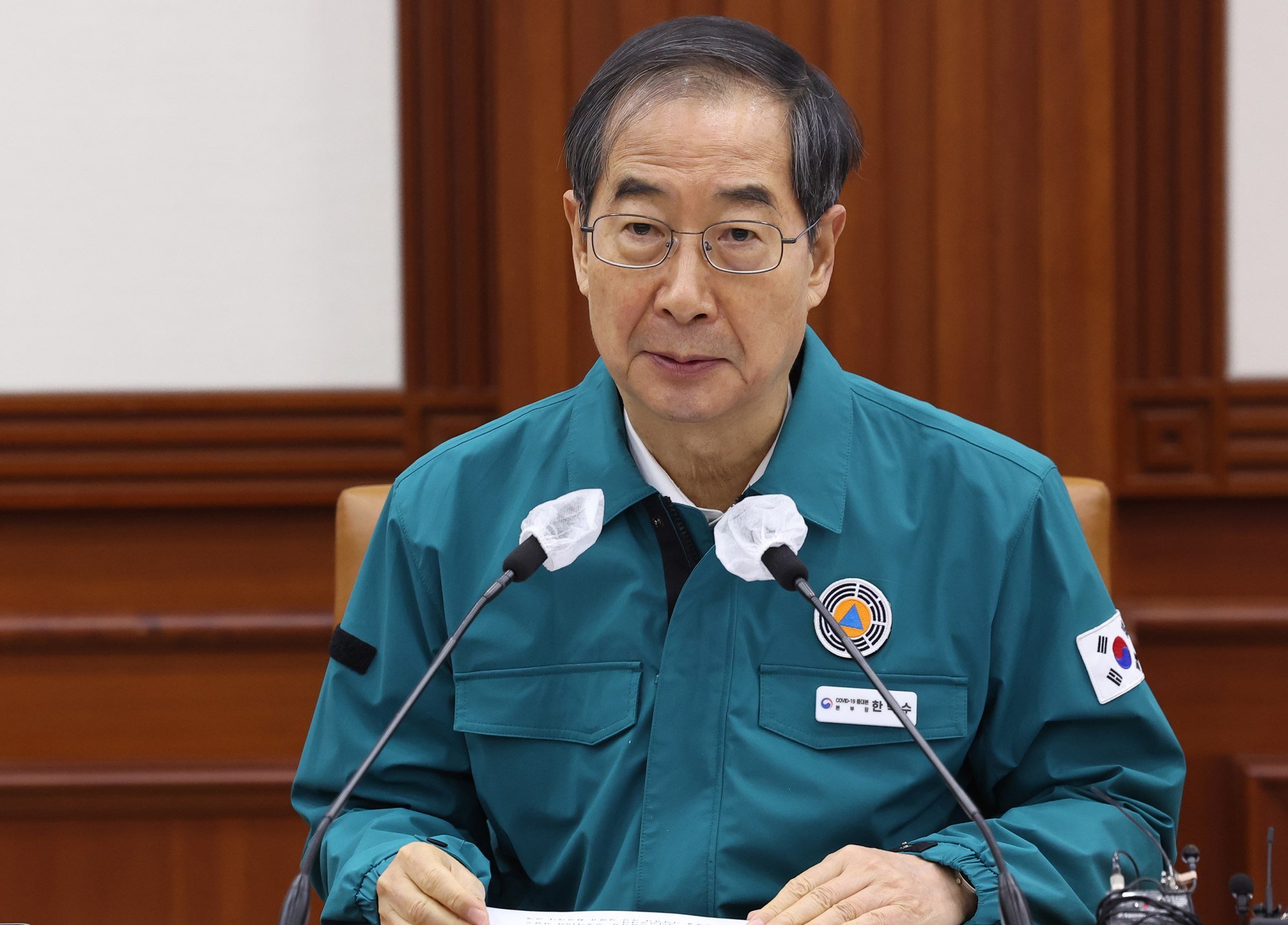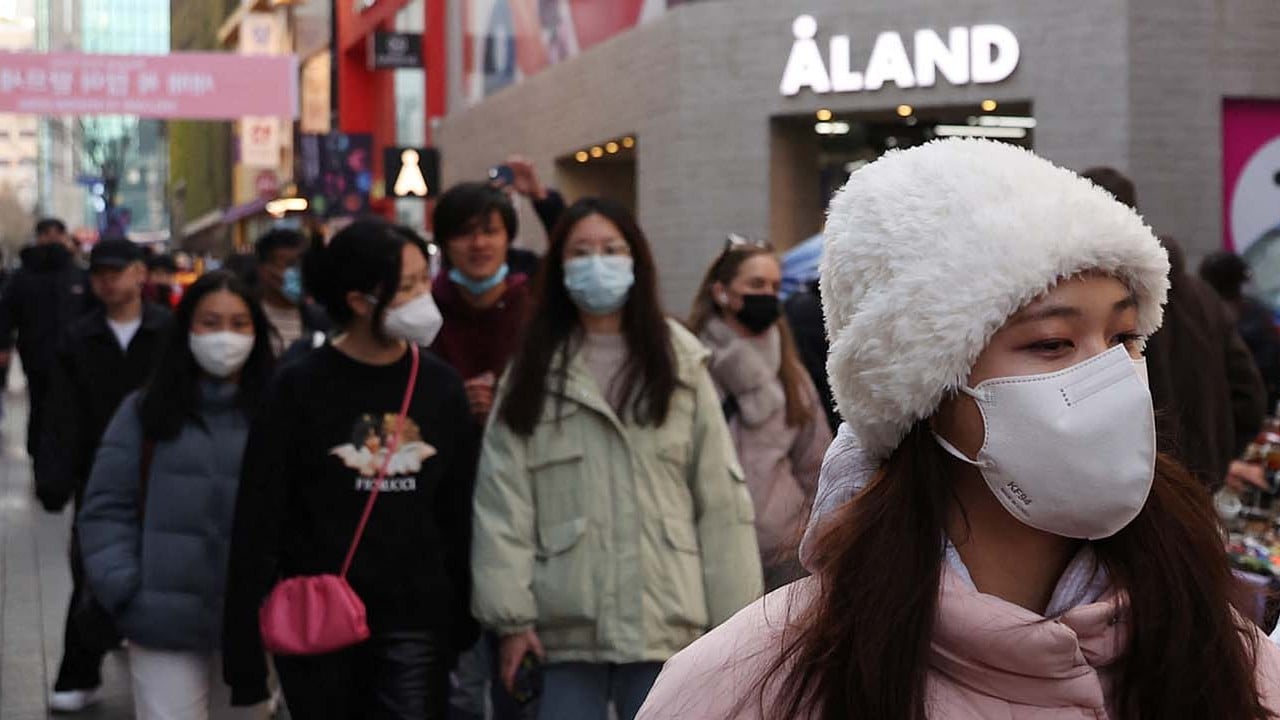
South Korea joins Singapore, most of rest of world, in scrapping indoor mask mandate
- South Korean PM Han Duk-soo said the lifting of face-covering rules will take effect on January 30, except on transport and in medical facilities
- Singapore lifted its own indoor mask mandate in August. Japan never imposed one and no longer advises people to wear masks outdoors. And Hong Kong?
Prime Minister Han Duck-soo said on Friday that the lifting of face-covering rules will take effect on January 30, though a number of places will still require masks including care homes and hospitals, as well as on public transport.
“The daily number of new infections is continuing to decline and despite concerns over a spike in cases in China, the situation here is under control without major troubles,” the prime minister said during a Covid response meeting.

South Korea’s mask mandate had been in place since November 2020.
End Hong Kong’s mask mandate and spare city global embarrassment
In South Korea, authorities said they had determined that the country’s current Covid wave had peaked, based on the death rate and the number of critical patients.
More countries are rolling back pandemic policies as the world shifts to treating Covid as endemic, though Asia has remained a notable holdout for mask policies.
South Korea ended its outdoor mask mandate in September last year, but remained wary about indoor activities due to a virus resurgence during the winter. The number of daily Covid cases has dropped below 30,000 from more than 150,000 in August, with the death rate per 100,000 people at around 0.1, according to official figures.
First in, last out: why can’t Hong Kong move on from masks already?
The easing of mask rules coupled with the coming holidays could result in a temporary surge in new cases, Prime Minister Han warned, urging health authorities to stay vigilant especially for those more vulnerable to infection.
South Korea has scrapped most of its pandemic-related precautions, but it maintains a seven-day isolation rule for those testing positive for Covid-19.
Reporting by Reuters, Bloomberg, SCMP reporter

